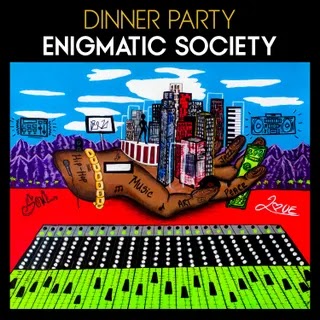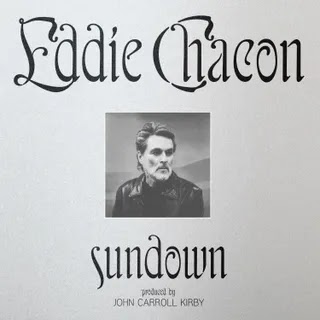Recorded in 2010, Prince’s first posthumous album of all unreleased material is a state-of-the-union concept record in which he bluntly broadcasts his opinions on taxes, technology, drugs, religion, and the music industry.
Prince has some great protest songs—“Sign o’ the Times,” “1999,” “America,” “Ronnie, Talk to Russia,” and “Love Sign,” to name a few—but he was never a great protest songwriter. Amid all of the dizzying ups and downs of his four-decade career, one of the few things that remained constant was his willingness to put subtlety and artifice aside if there was a message that he felt needed to get across, be it “Abraham Lincoln was a racist,” “Let’s take all the guns away,” or “Don’t let your children watch television until they know how to read.” He had some good points, and he could be passionate in his conviction and poignant in his starry-eyed pleas for peace, but the intricacies of his songs about love, sex, and God didn’t always carry over to his polemics.
Welcome 2 America is the first posthumous Prince album to consist entirely of unreleased material, discovered by the late pop star’s archivist Michael Howe in the form of a fistful of CD-Rs with tracklists scrawled on their surfaces. As the title suggests, it’s a state-of-the-union concept album, with Prince’s opinions on taxes, technology, drugs, religion, and the music industry broadcast clearly and bluntly over taut power-trio backing by bassist Tal Wilkenfeld and drummer Chris Coleman. The 12-song set was recorded in 2010, and he had high enough hopes for it to name a tour after it. Then he shelved it for unknown reasons, most likely because Wilkenfeld couldn’t join the tour, making the album an obsolete representation of his live sound—though, given how consistently his performances outpaced his recorded work in the latter part of his career, it wouldn’t seem to matter much.
Prince had a lot on his mind in 2010, and contemporaneous Prince albums like Lotusflow3r and 20Ten were no less shy in making dire predictions and grave diagnoses. Those were not among his strongest albums, and neither is this one. But Welcome 2 America fares a little better because of the construction of the album itself. At 54 minutes, it finds a nice middle ground between the bloat of the Lotusflow3r triple-album package and the slightness of 20Ten. Welcome 2 America is well sequenced; none of the songs feel like filler; the trio format imposes a consistent sound and style. But a Prince album devoted almost entirely to socially conscious material inherently plays against his strengths as a writer, and he gets in his own way too much for Welcome 2 America to occupy the upper tier of his catalog.
The opening track, “Welcome 2 America,” is by turns funny, embarrassing, and preposterous. A chestnut like “land of the free, home of the slave” actually has the potential to be controversial in a time when the term “critical race theory” has been recast as a red herring to avoid acknowledging systemic racism in the first place, but most of the targets on Prince’s laundry list are too broad for us to really know what he’s pissed about. “Distracted by the features of the iPhone”? Instagram, sure—but did he really have a problem with Voice Memos? “You think today’s music will last”? Elixer hasn’t. “Truth is a new minority” could be a jab at double-talking politicians, but he could just as well be telling us to keep our third eye open; this is a man who apparently believed tuning his songs to 432 Hz made them more aligned with the universe. The best line he manages is razor-sharp and searingly specific. “Hope and change?” he scoffs at President Obama, then a year into his first term. “Everything takes forever.”
Prince sounds strangely detached from this material. He narrates “Welcome 2 America” in a petulant monotone that sounds more smug than righteously angry. “Born 2 Die” is a morality play about a drug-pushing drifter, and it’s so dispassionately narrated it doesn’t really seem to wound him that this girl threw her life away. “Hot Summer” deserves a scorching vocal, but he’s so sedate that we don’t really believe he’s going to have a hot summer, just that he’s writing a song for someone else’s. He cedes the microphone to an animated lineup of female singers for much of the record’s runtime, and they sound like they’re having a lot more fun than he is (though “Same Page, Different Book” does not break the “Cindy C” / “Alphabet St.” streak of unfortunate backup-singer rap verses). Prince slinks between these vocalists instead of standing in front and taking charge. He’s the master of ceremonies on his own album, forever welcoming us to America, never really showing us around.
“Sign o’ the Times” worked because Prince set a scene rather than flatly reading the country’s diagnosis. Each verse focused on a person, not a platitude, and his guitars and LinnDrums generated enough heat and pollution that the song seemed to take place in the very urban hellscape he described. Welcome 2 America, meanwhile, doesn’t take place anywhere but within the cloud-painted walls of Paisley Park. The production is immaculate throughout, cushioned with chimes and big swooning synths, as if Prince is delivering his missives from within the folds of a zebra-print couch. The reverb synonymous with his production style is absent, along with any sense of grit, space, or atmosphere. “Check the Record” wants to be a mid-tempo glam-rock rave-up like “Darling Nikki” and “She’s Always in My Hair,” but it’s so dryly produced that it comes across like a pale idea of a rocker rather than getting into our bones.
Given the incongruously plush sound, it makes sense that one of the record’s best songs, “When She Comes,” isn’t about Uncle Sam at all but is simply one of those Prince sex jams that’s way more ambitious than it needs to be. He luxuriates in the silky spaces between the beats, making lines like “she can see stars shoot all over her sky” somehow sound like affirmations of the beauty of life even as we know he’s just being naughty. It’s one of the few moments on Welcome 2 America where form meets content. Another is the cryptic “1010 (Rin Tin Tin),” whose eerie synth stabs summon the right atmosphere of impenetrability; it lives in mystery, which is always a good place for Prince. There’s also a cover of fellow Minneapolitans Soul Asylum’s “Stand Up and B Strong,” good enough to raise the question of why “Stand Up and B Strong” wasn’t always a half-time slow jam.
It’s easy to praise Welcome 2 America just for being protest music, so long as you believe any ammunition against ignorance is worth throwing into the cannon. This stuff might strike more of a chord now with a disillusioned American public than if he’d released it amid the tentative optimism of the early Obama years, but the recordings have not grown any more or less inspired since they were made, and if they’re “prescient” or “timely,” those are facts, not virtues. He could’ve opened this album by predicting a Trump presidency and a Capitol riot, and it wouldn’t make Welcome 2 America the next Sign o’ the Times; it was and is a spotty album from a time when Prince was making a lot of those.
















0 comments:
Post a Comment